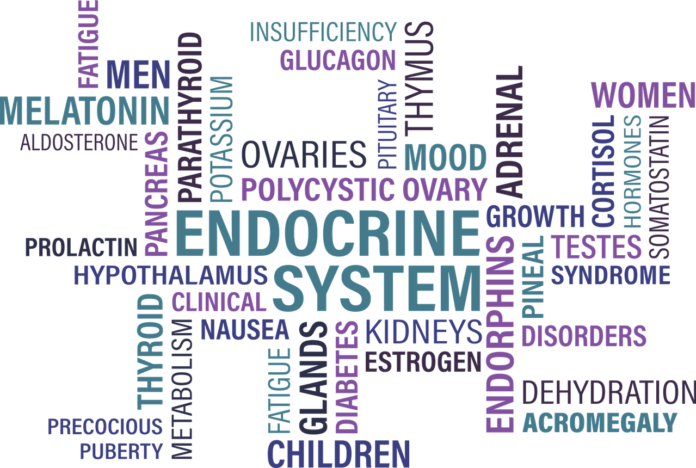Do you always feel stressed? Are you low on energy or feel run-down? Do you have brain fog, trouble sleeping at night but still feel tired during the day, and crave salty foods and/or sugar? These are just a few of the signs of adrenal fatigue.
When the adrenal glands are becoming fatigued, symptoms usually start gradually and become progressively worse. People born with strong adrenals stay healthy longer. If you have symptoms that are interfering with your enjoyment of life, I suggest you seek the assistance of a health professional who understands adrenal fatigue.
Relying on coffee, sugar, carbs, or stimulants is counterproductive to health. James L. Wilson, author of Adrenal Fatigue The 21st Century Stress Syndrome, explains how the adrenal glands are affected by these vices and how they make recovery even more difficult.
The adrenal glands produce hormones needed for quick action when responding to stress in addition to many other hormones. They provide approximately 25% of a premenopausal woman’s estrogen, progesterone, and testosterone, and help maintain normal menstrual cycles and hormone balance. In postmenopausal women, they provide the majority of progesterone and testosterone, as well as some estrogens.
When responding to stress, the adrenal system turns off regular hormone production and produces adrenaline, cortisol, and ACTH. These hormones allow quick energy by breaking down muscle tissue rather than using fats for energy. This is one reason people gain weight when experiencing ongoing stress.
The adrenal glands deal with emergencies by helping the body prepare for action. In what’s called the fight or flight stress response; the power that runs normal daily functioning is rerouted to help ensure survival. Early threats to survival were predators or forces of nature. Today we have many daily stressors (mental, emotional, physical, and environmental) and the adrenal glands respond as if our life is in danger. Can you see why this is so detrimental when this happens repeatedly?
In the fight or flight stress response, the hypothalamus signals the pituitary gland to release ACTH, which instructs the adrenals to secrete epinephrine (adrenaline) and norepinephrine (noradrenaline), cortisol, and other stress related hormones. Breathing becomes faster and shallower to supply oxygen to the heart, brain, and muscles. Cortisol levels rise and convert stored glycogen into blood sugar to provide more energy. Blood is sent to muscles and glands while the digestive, immune, and cellular repair systems shut down. Although this system kept our ancestors alive in times of danger, this system is exactly what causes damage to the body and the adrenal glands when constantly triggered.
When stress isn’t handled properly, the toll on health ranges from being bothersome to life-threatening. This is why it’s important to look at the causes of stress, learn the best ways of handling it, and be proactive in doing what’s best for your health.
Signs of low adrenal function include brain fog, lack of energy, mild depression, difficulty getting up in the morning, fatigue not relieved by sleep, sleeplessness, muscle aches and pains, hair loss, joint pains, craving for salty foods, low blood pressure, slow healing, decreased sex drive, light-headedness when standing up quickly, increased PMS, memory problems, mood swings, and decreased tolerance to stress. Adrenal exhaustion has been correlated with fibromyalgia, autoimmune disorders, chronic fatigue syndrome, arthritis, cancer, blood sugar problems, and thyroid disorders.
Hans Selye was a Hungarian endocrinologist who gained recognition for his scientific explanation of biological stress called the General Adaptation Syndrome (GAS). The first phase is Alarm, next Resistance, and then Exhaustion. If stressors continue beyond the body’s capacity, the body becomes susceptible to disease and may even lead to death which is considered the fourth phase by some authorities.
Although Selye’s work is well-known in the medical community, only two extremes of adrenal problems are recognized by mainstream medicine in terms of diagnosis. These include Cushing’s syndrome (caused by overactive adrenals) and Addison’s disease (caused by underactive adrenals.) These diseases are rare with most people functioning somewhere within the first three phases of GAS.
Because adrenal problems are common, I always check adrenal function during a patient’s first visit and look for other physical indications. Poor posture and muscle imbalances may indicate adrenal problems. I also have patients fill out a questionnaire that lists symptoms and rates them according to severity.
To further check adrenal function, I can utilize the Pupillary Response test and Raglan’s test. In the Pupillary Response test, a small flashlight is directed into the eye to see if the pupil remains dilated. Raglan’s test compares blood pressure taken after lying down for approximately 5 minutes to pressure taken immediately after standing. Blood pressure in a healthy person should rise 10-20mmHg after standing. If it stays the same or goes down, it usually indicates a problem with the adrenals, and possibly the heart.
In over 35 years of practice, I’ve seen impressive health improvements through chiropractic adjustments combined with specific whole food supplements to help rebuild the adrenals and other organs. Although chiropractic adjustments improve the neural, chemical, and hormone balance within the body, proper nutrition is necessary to maintain this balance. I’ve also found that when the adrenal glands aren’t functioning properly, it’s impossible to perform accurate muscle testing.
Come to our workshop to learn better ways of handling stress – and how you can improve and/or restore the health of your adrenal glands. In the meantime, pay attention to your nutrition. Start a food and sleep journal. Eat as cleanly as possible. Avoid processed foods, replacing them with good proteins (grass-fed meats, wild-caught fish, free-range eggs, and raw dairy, nuts, and seeds) fats (unprocessed organic coconut oil, pastured butter, and unheated olive oil), vegetables (low starch, mostly raw, steamed, organic when possible), and a small amount of fruit (mostly berries, low glycemic). Avoid caffeine, refined sugar, and alcohol. Add Celtic sea salt if you’re not sodium sensitive. And best of luck on your journey to a healthier you!











